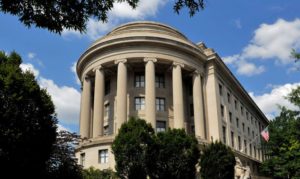
The FTC bans non-compete clauses, FDA allows retail pharmacies to offer abortion pills, and more…
IN THE NEWS
- The U.S. Food and Drug Administration (FDA) finalized a rule change allowing retail pharmacies to offer abortion pills. FDA’s new rule allows individuals to receive Mifepristone, a medication that can terminate a pregnancy up to 70 days gestation, from certified pharmacies. The change relaxed previous restrictions that limited the availability of Mifepristone to specialized clinics and offices. FDA also no longer requires in-person pick-up of the medication but instead permits patients to mail-order Mifepristone from a pharmacy. Over 3.7 million patients have used Mifepristone, according to FDA.
- The Federal Trade Commission (FTC) proposed a rule to ban non-compete clauses in employment contracts. The FTC noted that non-compete clauses bind one in five workers in the U.S.—about 30 million people. These clauses prevent workers from leaving an employer to work for a competitor and from starting a competing business within a set period of time. The FTC claimed that non-compete clauses reduce workers’ wages, hinder entrepreneurship, and reduce competition in the marketplace. The proposed ban would apply to all workers, including independent contractors, and would require employers to rescind existing non-compete clauses by the rule’s compliance date. The FTC estimated that the proposal could increase workers’ total earnings close to $300 billion annually.
- The U.S. Environmental Protection Agency (EPA) and the U.S. Department of the Army issued a final rule defining which waterways constitute “waters of the United States.” Waterways that fall under the definition receive certain protections under the Clean Water Act. The agencies repealed a Trump Administration rule to issue this new rule that they stated accounts for the latest science and U.S. Supreme Court rulings. EPA Administrator Michael S. Regan noted that the rule would increase protection for waters in the United States and “protects people’s health while providing greater certainty for farmers, ranchers, and landowners.”
- The Board of Governors of the Federal Reserve System, the Federal Deposit Insurance Corporation, and the Office of the Comptroller of the Currency issued a joint statement highlighting concerns—such as high levels of fraud risk—around banking currencies and crypto-assets. The statement advised banks to adopt and maintain procedures such as board oversight to prevent the risks inherent to crypto-assets from making their way into the banking system. The issuing agencies stated that they will continue to monitor the crypto-asset-related risk exposures of banks, especially given the recent failures of high-profile crypto-asset companies.
- The Federal Communications Commission (FCC) proposed new rules that would allow drones and other unmanned aircraft systems to access high-frequency licensed radio spectrum. The FCC called for public comment on its proposal for drones to transmit wireless communications over the 5-gigahertz radio spectrum band. In its notice, the FCC emphasized the importance of ensuring that the use of this shared spectrum for drones does not interfere with both land-based operations and manned aircraft. The FCC observed that the growing role of unmanned aircraft in delivering packages, emergency supplies, and first aid equipment warrants granting drone technologies greater access to radio spectrum.
- The Consumer Financial Protection Bureau (CFPB) released its annual report covering consumer reporting companies’ responses to consumer complaints. The annual report, required by the Fair Credit Reporting Act, focused on consumer complaints transmitted to three consumer reporting agencies from October 2021 through September 2022. Building upon the last annual report—which found that in many cases the agencies did not fulfill their obligations under the Act to review, report, and respond to consumer complaints—the bureau’s latest report found that the companies made significant positive changes in response to these complaints, such as providing quicker responses and greater rates of relief for complainants. The CFPB recommended that the companies continue to make improvements in their processes and responses, such as considering consumer burdens when rolling out automated complaint processes.
- The Centers for Medicare and Medicaid Services issued guidance to states that would reduce hunger and diet-related diseases among low-income patients who receive Medicaid benefits. The guidance permits states to provide Medicaid enrollees benefits to address housing needs and food insecurity with funds that normally cover standard health care services in clinics and offices. The Centers stated in a letter to state Medicaid directors that this expansion of benefits is meant to address unmet health and social needs among Medicaid enrollees.
- The U.S. Department of State established the Office of the Special Envoy for Critical and Emerging Technology. The State Department established the office as a central hub for technology policy expertise and building foreign partnerships related to critical and emerging technologies. The State Department identified biotechnology, advanced computing, artificial intelligence, and quantum information technologies as critical and emerging technologies integral to U.S. diplomacy. The office will assist in the creation and execution of foreign policy objectives concerning these technologies.
WHAT WE’RE READING THIS WEEK
- In an article in the Griffith Law Review, Corinne Tan, a professor at Nanyang Business School, discussed how regulators can address disinformation on social media platforms. Tan argued that governments and social media companies such as Facebook and Twitter should collaborate to shape how users react to and decide to transmit disinformation on those platforms. Tan claimed that this model of co-regulation is superior to expecting platforms to regulate themselves. Tan reasoned that platforms have financial incentives that do not always support limiting the spread of disinformation, and that government intervention can fill in the gaps.
- In a forthcoming article in the Wisconsin Law Review, Abigail Faust, law faculty at Tel Aviv University, argued that regulating underwriting decisions through bankruptcy law may be more effective at protecting consumers than current contract-based regulatory strategies. Faust noted that under the current regulatory framework, lenders profit by charging interest and selling the debts of consumers who cannot pay to third-party collections companies, often lending above consumers’ means to pay. Faust contended that consumer bankruptcy law better protects consumers by prohibiting lenders from pursuing claims against them when the lenders have provided credit at an interest rate above consumers’ means to repay.
- In an Urban Institute report, authors Matthew Chingos and Jason Cohn assessed how the pandemic affected federal student loan borrowers. Chingos and Cohn argued that, although borrowers generally are not financially worse off now than they were in 2019, warning signs indicate those borrowers will be worse off once loan payments resume. Chingos and Cohn noted, however, that borrowers in low-income households were more likely than other households to indicate that they were worse off in 2021 than in 2019. Chingos and Cohn also highlighted that nearly half of borrowers were concerned about their ability to make ends meet compared with one-third of non-borrowers. Chingos and Cohn urged the Biden Administration to ensure that resuming payments does not further disadvantage vulnerable borrowers.
EDITOR’S CHOICE
- In an essay in The Regulatory Review, Abigail Jacobs, a professor at the University of Michigan, and Deirdre Mulligan, a professor at the University of California, Berkeley, discussed the challenge of integrating artificial intelligence (AI) into government processes. Jacobs and Mulligan argued that governments often have to scrutinize whether the process by which government AI tools arrive at policy decisions satisfies certain legal requirements and standards. To solve this problem, Jacobs and Mulligan recommended that governments use measurement modeling, which is the use of statistical models to assess the consequences of AI-driven decisions. Jacobs and Mulligan claimed that if governments use measurement modeling to shape the data that agencies’ AI tools use to make decisions, those tools will arrive at less biased and more fair outcomes.



